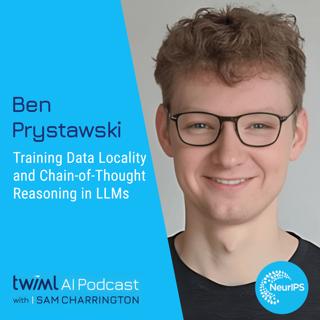
Training Data Locality and Chain-of-Thought Reasoning in LLMs with Ben Prystawski - #673
Today we’re joined by Ben Prystawski, a PhD student in the Department of Psychology at Stanford University working at the intersection of cognitive science and machine learning. Our conversation centers on Ben’s recent paper, “Why think step by step? Reasoning emerges from the locality of experience,” which he recently presented at NeurIPS 2023. In this conversation, we start out exploring basic questions about LLM reasoning, including whether it exists, how we can define it, and how techniques like chain-of-thought reasoning appear to strengthen it. We then dig into the details of Ben’s paper, which aims to understand why thinking step-by-step is effective and demonstrates that local structure is the key property of LLM training data that enables it. The complete show notes for this episode can be found at twimlai.com/go/673.
26 Helmi 202425min
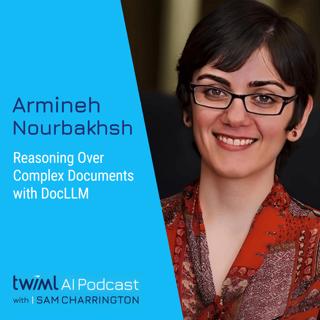
Reasoning Over Complex Documents with DocLLM with Armineh Nourbakhsh - #672
Today we're joined by Armineh Nourbakhsh of JP Morgan AI Research to discuss the development and capabilities of DocLLM, a layout-aware large language model for multimodal document understanding. Armineh provides a historical overview of the challenges of document AI and an introduction to the DocLLM model. Armineh explains how this model, distinct from both traditional LLMs and document AI models, incorporates both textual semantics and spatial layout in processing enterprise documents like reports and complex contracts. We dig into her team’s approach to training DocLLM, their choice of a generative model as opposed to an encoder-based approach, the datasets they used to build the model, their approach to incorporating layout information, and the various ways they evaluated the model’s performance. The complete show notes for this episode can be found at twimlai.com/go/672.
19 Helmi 202445min
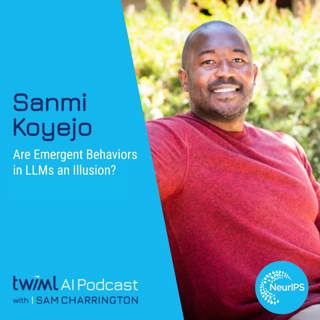
Are Emergent Behaviors in LLMs an Illusion? with Sanmi Koyejo - #671
Today we’re joined by Sanmi Koyejo, assistant professor at Stanford University, to continue our NeurIPS 2024 series. In our conversation, Sanmi discusses his two recent award-winning papers. First, we dive into his paper, “Are Emergent Abilities of Large Language Models a Mirage?”. We discuss the different ways LLMs are evaluated and the excitement surrounding their“emergent abilities” such as the ability to perform arithmetic Sanmi describes how evaluating model performance using nonlinear metrics can lead to the illusion that the model is rapidly gaining new capabilities, whereas linear metrics show smooth improvement as expected, casting doubt on the significance of emergence. We continue on to his next paper, “DecodingTrust: A Comprehensive Assessment of Trustworthiness in GPT Models,” discussing the methodology it describes for evaluating concerns such as the toxicity, privacy, fairness, and robustness of LLMs. The complete show notes for this episode can be found at twimlai.com/go/671.
12 Helmi 20241h 5min
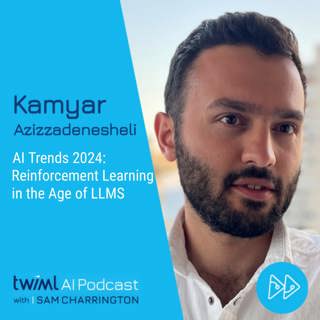
AI Trends 2024: Reinforcement Learning in the Age of LLMs with Kamyar Azizzadenesheli - #670
Today we’re joined by Kamyar Azizzadenesheli, a staff researcher at Nvidia, to continue our AI Trends 2024 series. In our conversation, Kamyar updates us on the latest developments in reinforcement learning (RL), and how the RL community is taking advantage of the abstract reasoning abilities of large language models (LLMs). Kamyar shares his insights on how LLMs are pushing RL performance forward in a variety of applications, such as ALOHA, a robot that can learn to fold clothes, and Voyager, an RL agent that uses GPT-4 to outperform prior systems at playing Minecraft. We also explore the progress being made in assessing and addressing the risks of RL-based decision-making in domains such as finance, healthcare, and agriculture. Finally, we discuss the future of deep reinforcement learning, Kamyar’s top predictions for the field, and how greater compute capabilities will be critical in achieving general intelligence. The complete show notes for this episode can be found at twimlai.com/go/670.
5 Helmi 20241h 10min
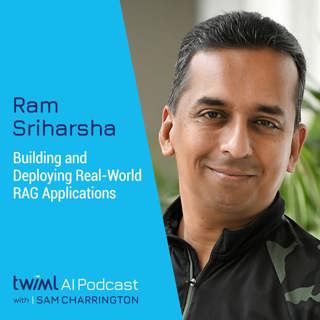
Building and Deploying Real-World RAG Applications with Ram Sriharsha - #669
Today we’re joined by Ram Sriharsha, VP of engineering at Pinecone. In our conversation, we dive into the topic of vector databases and retrieval augmented generation (RAG). We explore the trade-offs between relying solely on LLMs for retrieval tasks versus combining retrieval in vector databases and LLMs, the advantages and complexities of RAG with vector databases, the key considerations for building and deploying real-world RAG-based applications, and an in-depth look at Pinecone's new serverless offering. Currently in public preview, Pinecone Serverless is a vector database that enables on-demand data loading, flexible scaling, and cost-effective query processing. Ram discusses how the serverless paradigm impacts the vector database’s core architecture, key features, and other considerations. Lastly, Ram shares his perspective on the future of vector databases in helping enterprises deliver RAG systems. The complete show notes for this episode can be found at twimlai.com/go/669.
29 Tammi 202435min
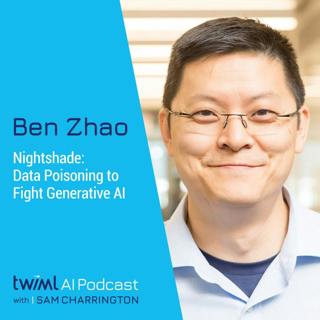
Nightshade: Data Poisoning to Fight Generative AI with Ben Zhao - #668
Today we’re joined by Ben Zhao, a Neubauer professor of computer science at the University of Chicago. In our conversation, we explore his research at the intersection of security and generative AI. We focus on Ben’s recent Fawkes, Glaze, and Nightshade projects, which use “poisoning” approaches to provide users with security and protection against AI encroachments. The first tool we discuss, Fawkes, imperceptibly “cloaks” images in such a way that models perceive them as highly distorted, effectively shielding individuals from recognition by facial recognition models. We then dig into Glaze, a tool that employs machine learning algorithms to compute subtle alterations that are indiscernible to human eyes but adept at tricking the models into perceiving a significant shift in art style, giving artists a unique defense against style mimicry. Lastly, we cover Nightshade, a strategic defense tool for artists akin to a 'poison pill' which allows artists to apply imperceptible changes to their images that effectively “breaks” generative AI models that are trained on them. The complete show notes for this episode can be found at twimlai.com/go/668.
22 Tammi 202439min
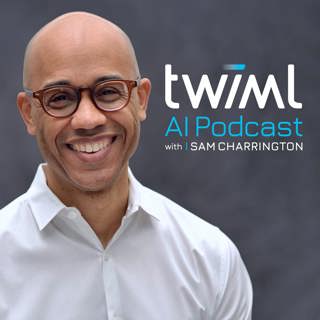
Learning Transformer Programs with Dan Friedman - #667
Today, we continue our NeurIPS series with Dan Friedman, a PhD student in the Princeton NLP group. In our conversation, we explore his research on mechanistic interpretability for transformer models, specifically his paper, Learning Transformer Programs. The LTP paper proposes modifications to the transformer architecture which allow transformer models to be easily converted into human-readable programs, making them inherently interpretable. In our conversation, we compare the approach proposed by this research with prior approaches to understanding the models and their shortcomings. We also dig into the approach’s function and scale limitations and constraints. The complete show notes for this episode can be found at twimlai.com/go/667.
15 Tammi 202438min

AI Trends 2024: Machine Learning & Deep Learning with Thomas Dietterich - #666
Today we continue our AI Trends 2024 series with a conversation with Thomas Dietterich, distinguished professor emeritus at Oregon State University. As you might expect, Large Language Models figured prominently in our conversation, and we covered a vast array of papers and use cases exploring current research into topics such as monolithic vs. modular architectures, hallucinations, the application of uncertainty quantification (UQ), and using RAG as a sort of memory module for LLMs. Lastly, don’t miss Tom’s predictions on what he foresees happening this year as well as his words of encouragement for those new to the field. The complete show notes for this episode can be found at twimlai.com/go/666.
8 Tammi 20241h 5min





















